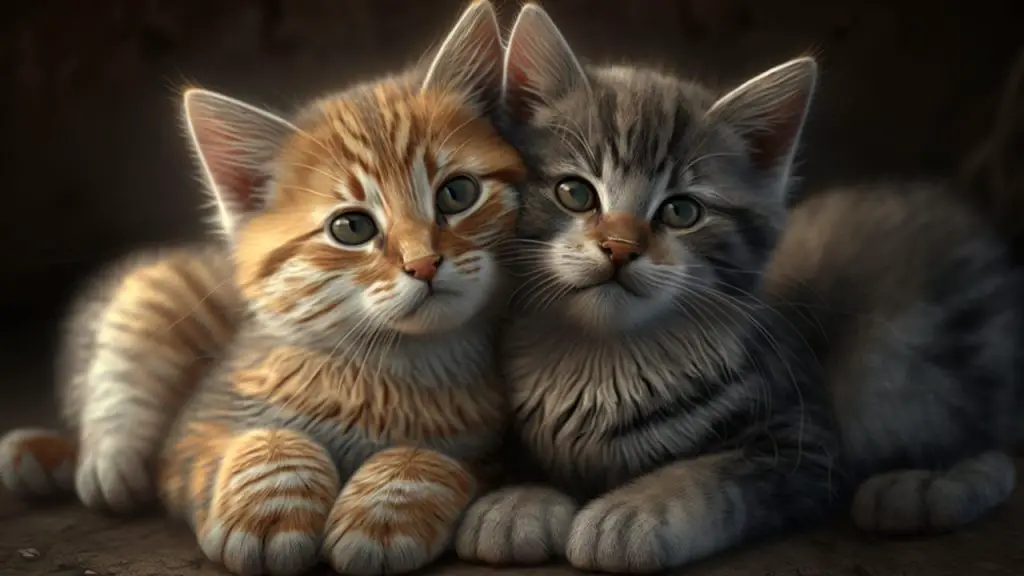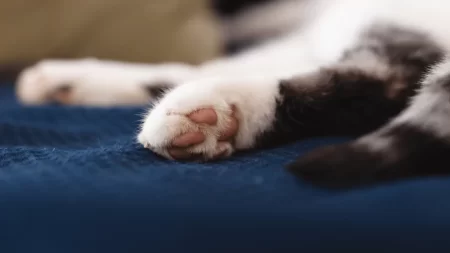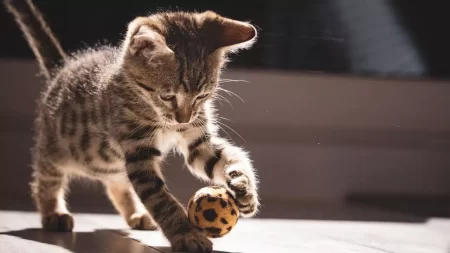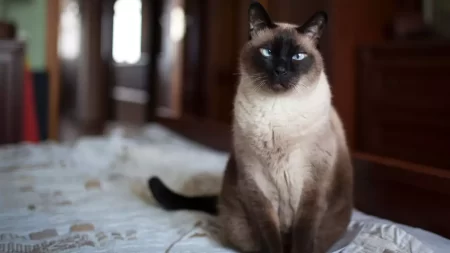Ever wondered if cats with the same parents can have kittens? You’re not on your own! It is feasible, yet also very dangerous, and can cause unplanned litter and health problems from inbreeding. In this article, let’s look at the dangers of inbreeding cats:
Do Cats Mate With Their Siblings?
Cats who grow up together may mate, causing genetic problems for their babies. It’s better to neuter or spay cats to avoid these issues and unplanned litters.
Cats and inbreeding are a big question. It could lead to health problems for moms and kittens. But, is it possible for brother and sister cats to have kittens? Let’s look at the facts.
We’ll explore the risks associated with inbreeding, like potential health issues, and any changes in behavior due to the close genetic ties.
Lastly, we’ll check out alternatives to breeding brother and sister cats together that could give healthier outcomes for moms and kittens.
The Risks of Inbreeding
When two cats that are related, like siblings or parent and offspring, mate, their kittens are born with inbreeding. This carries a high risk of producing unhealthy kittens. Inbreeding lowers the genetic diversity of a species, making them more prone to diseases and medical problems. Kittens from inbred breeding might have abnormalities that could be costly or even dangerous to treat.
Furthermore, inbred cats can have mental health issues and exaggerated traits that may not be desirable. Even if the physical signs of inbreeding are not present at first, they could later show up when the cat is an adult. It is wise to test cats suspected of inbreeding for genetic diseases prior to adoption.
Finally, it’s important to know that mating between brother and sister cats is illegal in some states. Before mating any animals, research your state laws on the matter.
The Genetics of Inbreeding
Inbreeding is when relatives mate and produce offspring. It’s common in many species, including cats. Close relatives, like siblings, can mate and have a litter of kittens. This increases the chances that genetic problems from both parents will be passed on to the kittens.
These issues can be passed on—unless the kittens are bred with an unrelated partner when they’re older. Cats living in the same home can also occasionally breed without anyone knowing.
Though this type of breeding isn’t unheard of, there are risks. Health must be considered for all cats involved and their descendants, as certain diseases and conditions have a higher chance of being passed on if the parent cats have similar genes.
- Heart defects
- Kidney failure
- Vision and hearing problems
- Skeletal deformities
are common issues.
Kittens from brothers and sisters may also experience slower growth rates due to reduced genetic diversity. If weakened genes are passed on to multiple generations, health repercussions may appear sooner rather than later. All of these things must be taken into account when deciding if brother-sister matings should take place.
Potential Health Issues in Inbred Cats
When cats of the same family breed, there is a bigger risk of passing on bad genes. This can lead to medical issues in the kittens such as birth defects, immune deficiencies, cancer, and eye problems. These deformities can range from physical disabilities to brain damage.
Inbred cats are more likely to suffer from immunodeficiency disorders and heritable diseases. Certain breeds have a predisposition for certain types of cancer, such as Persian cats and lymphoma. Eye problems are common too, like retinal degeneration, abnormal eyelids, and white blood vessels. These are caused by a genetic mutation that advances through generations of inbreeding.
The Pros and Cons of Breeding Brother and Sister Cats
Mating between brother and sister cats can create a litter of kittens that can be adopted into loving homes. But, before you choose to breed brothers and sisters, consider these things:
Pros:
- Placing the new kittens in homes could save cost and the hassle of finding them a home with marketing techniques.
- Inbreeding can make certain breeds better by concentrating genes from parents that have favorable traits.
Cons:
- Kittens born to related cats have a greater risk of genetic health problems due to the same genotypes in their gene pool. Cleft palates, heart defects, and deformities may occur. These conditions require vet care and could be financially stressful.
- Inbreeding limits variation in the bloodline and decreases genetic variability if cats unrelated to each other do not cross. This has long-term effects on maintaining healthy populations. Plus, many cat owners don’t understand genetic issues, so they make decisions without considering the consequences.
Before pairing cats, carefully look at their family trees. Get advice from vets and responsible breeders about how long gestation takes litter size, and possible inherited diseases.
Alternatives to Breeding Brother and Sister Cats
When breeding cats, avoid siblings. Inbreeding can bring problems like weaker immunity, genetic diseases, deformities, and even early death of kittens. Many pet owners also find it wrong.
Alternatives:
- Inter-species breeding – Mix Siamese with Bengal.
- Outcrossing – Mate unrelated cats of the same breed.
- Line Breeding – Mate cats displaying unusual traits.
- Crossbreeding – Mix two breeds for desired traits.
- Random Breeding – Mate purebreds with random animals.
Remember to test parents for genetic diseases before breeding to reduce any health risks for the kittens.
Steps to Take if You Decide to Breed Brother and Sister Cats
To reduce the risks of inbreeding, particular steps should be taken before breeding brother and sister cats. Start by having a vet check that both cats are healthy. Then, carry out genetic testing to identify and address any possible genetic problems.
If all is ok, and breeding goes ahead, there’s more to do:
- Brother and sister cats should only be bred once, and at least one year apart.
- Try to keep the litter size small.
- Finally, kittens should go to outside breeders or loving homes where their health and well-being can be monitored.
Conclusion
Ultimately, the choice to breed brother-sister cats is personal. You can have healthy kittens if you take on the risks of inbreeding. But, it is not certain that every kitten will be healthy or free of health issues. When related cats mate, there is a greater risk of serious health problems.
If you decide to breed, consult professionals and have the kittens checked by a vet. Also, guarantee homes for all kittens before any health issues passed genetically arise. This will save any future owner from unplanned costs or stress.







